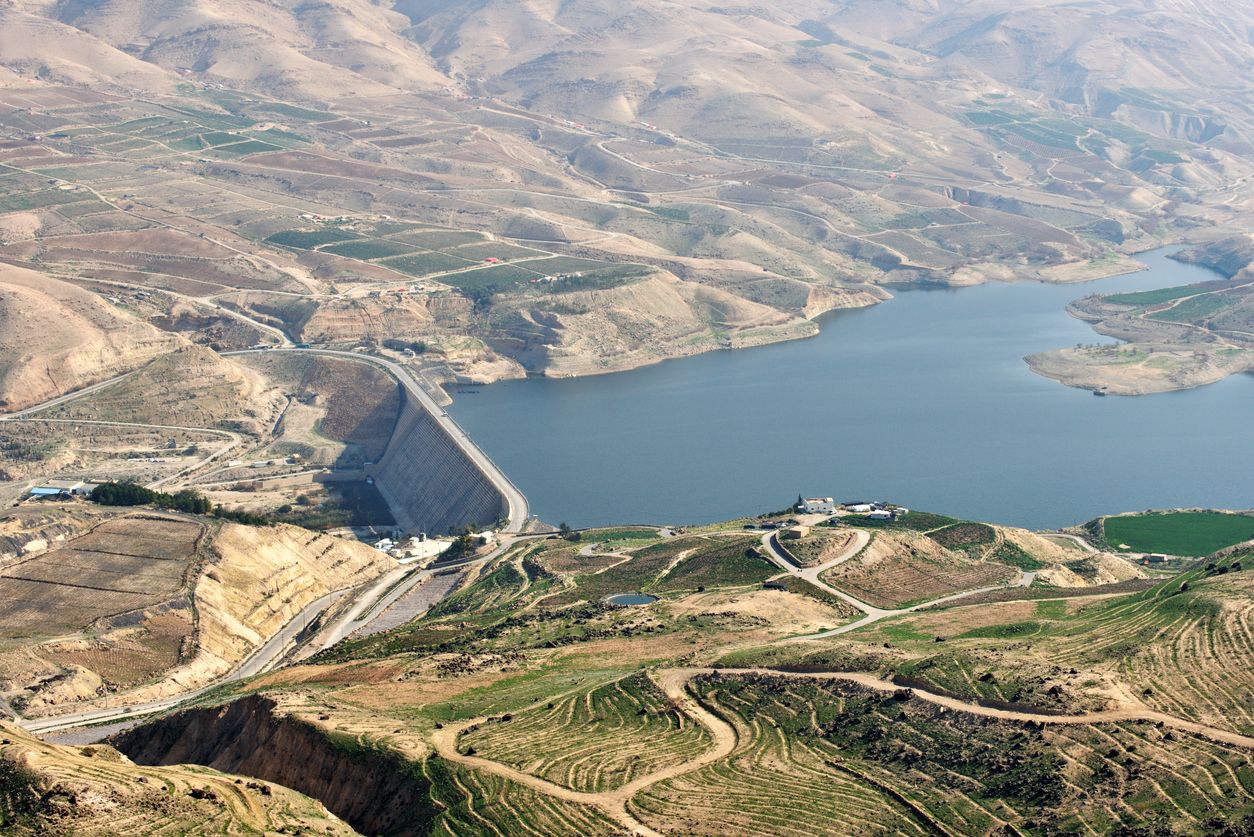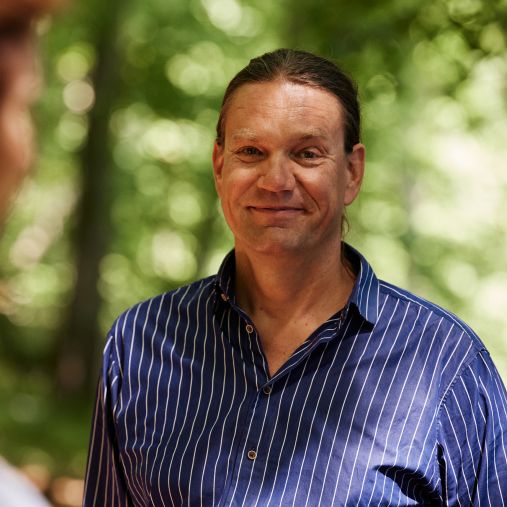Economic cults vs. planetary intelligence


DIGG vs. EGG
If we are facing a planetary collapse today, this is also due to the usual behavioural patterns in economic life that we do not immediately associate with it. Instead, we cling to them and try to master the planetary challenges with their help, which cannot succeed. We are therefore caught in a paradox.
The cult of leadership, competitive and dominance thinking, scaling mania and much more have made the planetary destruction we are experiencing today possible in the first place. The old patterns are causing us to stumble back into the traps of limited corporate and national interests. Regardless of the planetary discourse, these bad habits continue to be celebrated in the media. It is believed that without them, we cannot achieve change or the transformation that everyone is talking about.
I have already addressed some aspects of this paradox in articles on human functionalism and planetary intelligence. However, hardly anything has changed in terms of harmful behaviour and ways of thinking in recent years. They are deeply rooted in us and we build cults around them, whereas we could have known long ago that they don't work.
I deliberately call the now increasingly dysfunctional patterns of thought and action ‘cults’ here to emphasise their irrational character. By way of illustration, let us imagine a typical aggressive pattern such as that of raw material extraction, which is currently being extended to the deep sea and the Arctic, including Greenland. Highly fragile ecosystems are being targeted as if the destruction of the rainforests, such as the imminent degradation of the Congo Basin or Amazonia into a semi-arid scrubland, had never happened. Not to mention the destruction of the North American and - much earlier - the European primeval forests.
Yes, there are conservation efforts. But there are also major players who believe it is in their legitimate national or commercial interest to disregard them. The fact that there can no longer be national protection without planetary protection is deliberately ignored. This also applies on a smaller scale to urban sprawl, pollution or the destruction of non-human life.
Many continuing undesirable developments have to do with the cult of misbehaviour. Before we look at some of the behaviour and ways of thinking, the question arises as to what a ‘cult’ actually is.
This attribute, which can be found in the word ‘cult film’, for example, actually seems to express recognition - but in fact too much of it. In today's linguistic usage, cult means the exaggerated veneration of someone or something.
There are quite a few of these exaggeratedly revered things, ways of thinking and behaviour in business.
In addition to the cult of growth, the cult of leadership immediately stands out. The prevailing view is that only people who are managed and thus led, i.e. conditionally responsible, can act efficiently at all. And that brings us to the third in the group, the cult of efficiency.

All three are due to an archaic mindset of accumulation and dominance that is deeply rooted in all of us and still determines economic behaviour today. And which I would like to describe using the short form DIG as dominance (suppression of balanced models), ignorance (towards the planet and its population) and greed (archaic addiction to accumulation). So, ah, like Faust, two souls live in our chest. It makes sense that the word Faust has a double meaning: in German it stands for rage and rebellion, untamed power and violence. Derived from Latin - (from faustus = happy) - Faust, on the other hand, means the happy one. The name of this tragic hero, who often tries to achieve his happiness through violence, thus refers to the deep inner turmoil of his character. In order to at least find a balance between DIG and EGG (knowledge, generosity, serenity) and to achieve an EGG world in the long term, we need to recognise and change underlying behaviour and ways of thinking. That's why we take a closer look at some of them here and show new approaches:
1. The groth and prosperity cult
So far, he has justified all economic dynamism with two main arguments. Firstly, without growth, capitalism is at an end. And secondly, this economic growth naturally serves to maintain and increase prosperity. Both are questionable from a purely economic point of view. But if we also look at ecological growth and the well-being of nature, this cult is predominantly harmful. All economic activity, even sustainable economic activity, reduces the prosperity of nature. In addition, it generally only increases the prosperity of privileged social subgroups.
EGG approach: Prioritisation of natural prosperity, conservation ethics instead of work ethics.
2. the cult of leadership and decision-making
Quick decisions are considered the non-plus-ultra in business and society, the pace of change - according to the cult of leadership - must be ever faster through efficient management. Unclear, pending situations are not tolerated. Action is more important than reflection. This shows that the economic logic follows old military principles of attack, conquest and dominance. Modern management methods may disguise this, but structurally, economic activity is still based on the principle of battle. The own-your-project cult is also based on this principle.
However, appropriating something is not a planetary concept. The planet lives thanks to coexistence, balance, floating states, slow adaptation and long arcs of development. (Where the cult of leadership is taking us is also shown by the authoritarian transformation of democracies, whose balance-orientated nature is currently being destroyed).
EGG approach: Allow coexistence, floating states and long development arcs to have equal priority. Vague and floating states are often more planet-friendly than the hands-on behaviour of the decision-maker. Learn ambiguity tolerance and, if necessary, servant leadership.

3. the cult of the entrepreneur
It goes so far as to claim that the world would be a better place if everyone acted entrepreneurially. This may seem appealing at first glance, but from the point of view of entrepreneurial ideology, everyone would actively tackle individual problems and thus generate income. There are two fallacies here. Firstly, 70-80% of all business attempts, which we now euphemistically call start-ups, fail. In other words, they mainly cause resource consumption and other planetary costs that have no impact anywhere except in real nature itself, even if they pursue sustainable goals. On the other hand, entrepreneurs are the actors with one of the largest ecological footprints of all. This is due to the cult of scaling. Every economically interesting idea, however questionable it may be for the planet, is scaled to the extreme because this is the only way to justify investment.
EGG approach: Categorising entrepreneurial activity in a planetary context can also mean doing less. Those who take action generally create a much larger footprint than others who take a more reflective approach to their environment and the world. Prioritising companies and initiatives with human and planetary objectives.
4. the cult of scale
The large number of units, the unicorn worth billions, billions of customers and thousands, yes, millions of employees - they determine the economic reality. In doing so, they deform the planet. When economic activity strives towards a gigantomaniacal end goal, it is not only surprising local, regional and ideosyncratic solutions that fall short. Limited planetary services such as water, soil, atmosphere and biodiversity are also burnt up for often questionable objectives on the largest scale. The cult of scaling also applies to jobs and thus determines our policies. The more jobs a measure creates, the more justified it appears and the more votes it promises (even democracy is based on a cult of scaling). Instead of thinking in terms of jobs, we now have to think in terms of places to live that are not tied to gainful employment and take ecological costs into equal account.
EGG approach: Overcome the greed for large numbers. Think surprising local, regional and ideosyncratic solutions, places to live instead of jobs.
5. the cult of digital
Reinforced by the cult of AI, the digital cult suggests that computers will solve our problems and ultimately even save us. As a result, many societies are investing more resources in the development of machine intelligence than in human intelligence. Education for independent thinking is being pushed back in favour of training in the use of computers. Social participation without computers will soon be, and in many areas already is, no longer possible. Promises of salvation and optimisation mask increasing manipulation and data skimming down to the smallest social niches. Aggressive demarcation and alienation jeopardise democracy and peace. Individuals still don't understand that what feels great digitally can be destructive in real life. Our analogue brain is overwhelmed. The cult of digital is the twin of the cult of efficiency, which is what makes it so difficult to relativise. After all, it naturally generates economic added value and can be turned into money, right down to individualised cancer therapy or autonomous seed technology. At the same time, however, it undermines the quality and basis of life through authoritarian troll armies, hybrid warfare and disenchanting social media. The question of whether we adapt to the computers or they adapt to us seems to have been decided in favour of the computers.
EGG approach: Create many more digital-free areas of life, consciously maintain analogue solutions and, above all, provide massive training for independent, critical thinking that is not digitally framed from the outset, and thus counteract regression.
6. the cult of efficiency is double-edged. Of course, it is good if goals are achieved with as little effort as possible. The cult of efficiency also plays a major role in sustainability, especially as a cult of thriftiness. However, this is where the stumbling block lies, both economically and ecologically. Because planetary change will not be realised with frugality. On the contrary, it is to be expected that the necessary measures will soon force us to violate all economic principles. We will initially have to invest huge sums over a long period of time to contain the damage that has already been done, to implement adaptation measures such as resettlement, flood defences and the closure of destructive industries, and to reorganise our economies. Saving the planet and its inhabitants can be quantified in economic terms, but its value naturally goes far beyond any economic measure.
Those who do not understand this, who do not mobilise all means for the purpose of planetary protection without focusing on quick economic benefits, will not manage the change. This also shows that the fixation on economic efficiency can become one of the major obstacles to the development of planetary intelligence. Paradoxically, the second obstacle is the inherent human fear of inactivity. Because there are many things we will simply have to leave alone. We will also regenerate biodiversity and the climate through moratoria, make our societies more resilient through strategic and sovereign renunciation and, last but not least, make privileged classes take planetary responsibility through material sacrifices. (Economic) efficiency is a means that must be reconsidered, placed in a flexible framework and even ignored at times in order for planetary regeneration to work. Especially since even at the highest speed, the results of the efforts cannot be seen immediately.
EGG vs. DIG
We are caught up in the hectic, aggressive routines of our - economic - world. The working term DIG is intended to remind us to counteract all dominant, ignorant and greedy impulses that we notice in ourselves and others and thus make space for EGG realisation, generosity and serenity. In other words, space for the unfolding of Planetary Intelligence and thus the preservation of our world.
